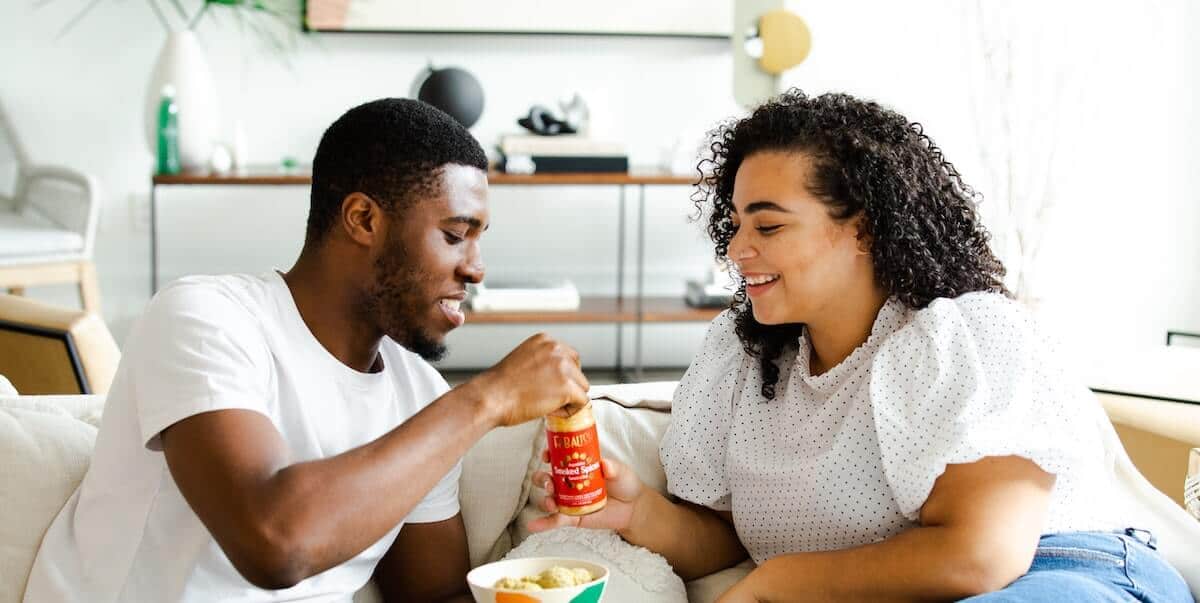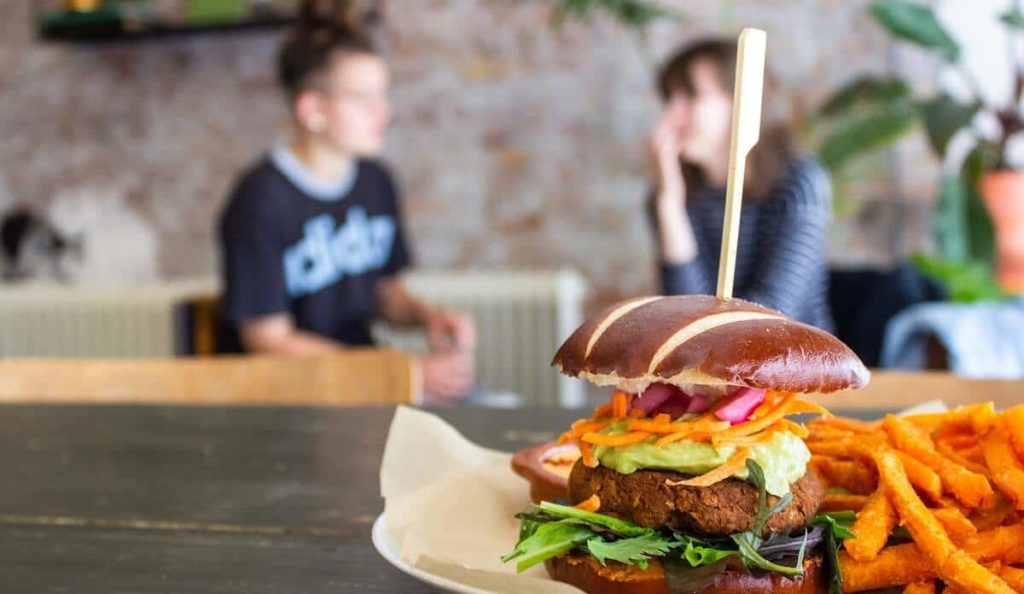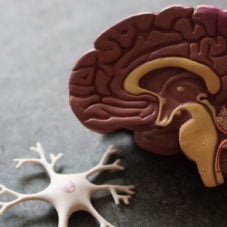We all know why people get fat, don’t we? We’ve had it drummed into us relentlessly that it’s all down to eating too much and moving too little. If the pounds are piling on, it’s just down to us being greedy or lazy. Or maybe not. Scientists are starting to discover that it’s really not as simple as calories out and calories in.
We’ve all noticed that some people appear to be able to eat whatever they want, while others have to constantly battle the bulge. Why did they get so lucky? It could all be down to their genetic make-up and the bacteria in their bowels.
Good and bad bacteria
Our gut is home to a mind-boggling 100 trillion bacteria that help us maintain a healthy digestion and break down the fiber in our food. Having the right balance between the good and bad bacteria is vital for our health and wellbeing. Researchers are now discovering that these microbes may also influence our hunger, control our metabolism and affect our sensitivity to insulin; in other words, having the wrong bacterial balance could make us fat (1).
Our bowels contain over 400 strains of bacteria and the cocktail of different varieties in each person is very individual. According to a study in the journal Cell, our genetic make-up can shape the numbers and the type of bacteria living in our gut, which may affect our tendency to gain weight (2).
In studies, slim people have seventy percent higher levels of diverse gut bacteria than those who are overweight. On average, people in the United States tend to have a less diverse bacterial colonization than those from less developed parts of the world. Our gut flora seems to be a key factor in the fight against obesity.

Identical twins, identical guts?
Researchers looked at the gut flora of twins and discovered that identical twins had more similar levels of gut bacteria than non-identical twins did. This suggests that the microbiota is down to nature rather than nurture. They identified a particular family of bacteria that were highly inheritable and were much more likely to be found in thin people. Indeed, if there was a significant difference in weight between twins, the researchers were able to accurately predict which of them was overweight, simply by looking at their gut bacteria (2).
The skinny bug
So what is this ‘skinny bacteria’ and where can I get some? I hear you screaming. It’s snappily named Christensenellaceae and having lots of it in your gut is linked with being slim, whereas low levels were associated with obesity.
In studies, when the samples containing the skinny bacteria were transplanted into the bowels of mice, it protected against weight gain.
The researchers said…
“Our findings show that specific groups of microbes living in our gut could be protective against obesity – and that their abundance is influenced by our genes. The human microbiome represents an exciting new target for dietary changes and treatments aimed at combating obesity.”
The good news is that the vast majority of us (as many as 96%) have some christensenellaceae in our digestive systems. Individual levels are partially written in our genes but there are ways of giving your healthy bacteria a boost, whatever your genetic inheritance.
How does it work?
The exact mechanism by which microbes influence weight isn’t fully understood. Scientists have postulated that they may affect the ability to process food, altering the body’s ability to extract nutrients and calories. Certain bacteria may also alter our sensitivity to insulin, so protecting us against diabetes and stimulating the body to burn fat instead of storing it on our waistlines.

Hunger hormone
Your body produces a hormone called ghrelin, which lets you know you’re hungry and need to eat. Usually after eating a meal, the hormone levels drop so that your need to eat fades. The bacterium Helicobacter Pylori appears to be involved in this process. It’s a microbe that’s been frequently in the health news because it’s linked to ulcers and stomach cancer. Antibiotic treatment has helped slash infection rates by fifty percent, which is great if you’re suffering from indigestion but bad news for obesity levels. Without H Pylori the hunger hormone levels appear to stay high, even after an adequate meal, so that you keep on eating (3).
Bacteria blitzers
Activity, diet and antibiotics can all affect your gut bacteria. You don’t even have to be prescribed antibiotics to suffer their effects. The food industry relies on the drugs to keep livestock healthy and infection-free. In fact, eighty percent of US antibiotics are used to treat animals not humans. This means that we’re ingesting them daily with the food we eat, which can disturb the delicate bacterial balance in our bowels (4).
The impact of antibiotics has been demonstrated in studies on mice. Mice who were given a high fat diet gained weight, mice that were given antibiotics also gained weight but it was the mice that were given both that got really fat (5). And when we investigate the history of the obesity epidemic, it correlates with the expansion in intensive farming and the use of antibiotics in animal feeds. Looking across the world, the countries that use this approach to livestock farming tend to have the highest levels of obesity.

What can I do?
Don’t panic if weight struggles run in your family. Although your gut bacteria are influenced by genetics, the way you live your life and the food you eat can dramatically affect your bacterial balance, so you can make a difference and lose weight.
Fibre first: choosing a plant based diet, rich in fibre has been shown to boost levels of bilophila, a type of healthy bacteria. Fibre nourishes the microbes in your gut, so choose plenty of fruit, vegetables and wholegrains daily. Food containing prebiotics will allow your bacteria to flourish, so snack on bananas and add garlic and leeks to your meals.
Pick probiotic foods: active and fermented food really pack a probiotic punch. Live yogurt, kefir, sauerkraut, miso and raw cheeses will all top up your gut bacteria.
Take a daily supplement: it can be tricky to get the probiotics your body needs from the modern diet. If you’re struggling with kefir and kimchi then take a probiotic supplement daily – and store it in a cool environment so that it stays active.
Skip the sugar: too much sugar can feed the bad microbes and upset the delicate balance of flora in the gut, leaving you bloated, lethargic and overweight. Cut out refined sugars to look and feel better, inside and out.
Get moving: a session in the gym doesn’t just work your muscles, even your bowel benefits. Being active as a child has a real impact on the diversity of your gut microbiota (6) but it’s never too late to start. Regular exercise as an adult can also make a difference, with studies showing that the stools of rugby players contained more diverse bacteria than their less athletic peers (7).
What next?

If, like me, you started frantically googling “christensenellaceae supplements” after reading the research, then I’m sorry to disappoint. At the moment you can choose a general probiotic supplement and work to improve your gut health with diet and lifestyle- but you can’t yet pop a skinny bacteria pill. However, there may be another way to boost your levels.
The science of faecal transplantation is developing rapidly with advocates claiming it may be the answer to weight problems. It’s been used to combat bowel superbugs like clostridium difficile. But one slim woman who received a transplant from her overweight daughter noticed that she subsequently ballooned in weight (8). Sounds far-fetched? Researchers have actually seen similar results in mice, with lean mice gaining weight after getting gut bacteria from obese mice. In a Dutch study, faecal transplants from skinny donors helped individuals with metabolic syndrome become more sensitive to insulin (9)(10).
Could something as simple as poop really help us fight the battle of the bulge? There are loads of internet sites that say that it could, as well as giving instructions on how to do-it-yourself. But before you overcome the ick factor and head over to your skinny friend’s house with a potty, a blender and a syringe, think again. You could transfer bacteria that are harmful, damage your bowel or potentially trigger other diseases. The truth is, we really don’t know enough about the procedure yet. It’s safer to wait for the research evidence to build and while you’re waiting, use your diet and supplements to give your gut a safe bacterial boost.
References
- How Gut Bacteria Help Make Us Fat and Thin (Scientific American, June, 2014), Claudia Wallis
- Human genetics shape the gut microbiome (Cell. 2014 Nov 6; 159(4): 789–799). Julia K. Goodrich, Jillian L. Waters, Angela C. Poole, Jessica L. Sutter et al
- Ghrelin, Helicobacter pylori and body mass: is there an association?( Isr Med Assoc J. 2012 Feb;14(2):130-2) Boltin D, Niv Y.
- Long-term impacts of antibiotic exposure on the human intestinal microbiota (Microbiology (2010), 156, 3216–3223) Cecilia Jernberg, Sonja Lo ̈fmark, Charlotta Edlund and Janet K. Jansson
- Altering the Intestinal Microbiota during a Critical Developmental Window Has Lasting Metabolic Consequences (Cell, Volume 158, Issue 4, p705–721, 14 August 2014) Laura M. Cox, Shingo Yamanishi, Jiho Sohn, Alexander V. Alekseyenko, Jacqueline M. Leung et al
- Science Daily (2016). Early-life exercise alters gut microbes, promotes healthy brain and metabolism.
- Exercise and associated dietary extremes impact on gut microbial diversity (Gut 2014; 63:1913-1920) Clarke, S., Murphy, E., O’Sullivan, O., Lucey, A., Humphreys, M., & Hogan, A. et al.
- Obesity via Microbe Transplants (Science Daily, September 5, 2013) Ed Yong
- Transfer of intestinal microbiota from lean donors increases insulin sensitivity in individuals with metabolic syndrome (Gastroenterology 2012 Oct; 143(4):913-6) Vrieze A1, Van Nood E, Holleman F, Salojärvi J, Kootte RS, Bartelsman JF et al
- Not just obesity – faecal transplants’ weird effects (New Scientist 11 February 2015) Jessica Hamzelou






